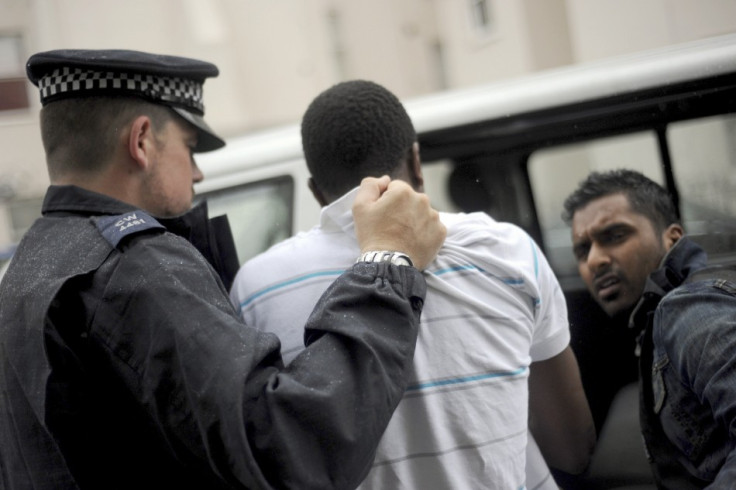Research Reveals Individual Motivation Behind London Riots in August

The August riots had set the whole London on fire, many experts claimed that the riots were further triggered due to the not-so-welcoming polices by the new coalition government for immigrants, rise of unemployment and high taxes.
However, an independent research report published by the Cabinet office has revealed the independent motivation behind the riots.
The research study was conducted by a large and experienced research team. Gareth Morrell was the project director and Sara Scott the corporate sponsor. They were supported by NatCen researchers.
"This is the first research to hear directly from young people about the riots. It is clear from the findings that there is no simple explanation as to why young people got involved, but it is extremely beneficial in aiding our insights into what happened and exploring different motivational factors," Chief Executive of NatCen Penny Young said in a statement.
The report explains that the riots were seen as an exciting event - a day like no other - described in terms of a wild party or "like a rave." The party atmosphere, adrenaline and hype were seen as encouraging and explaining young people's involvement by young people themselves and community stakeholders. The excitement of the events was also tied up with the thrill of getting "free stuff" - things they wouldn't otherwise be able to have.
Also, the Mark Duggan case was described as the origin of the riots and the way it was handled was seen as an example of a lack of respect by the police that was common in the experience of young black people in some parts of London. Outside London, the rioting was not generally attributed to the Mark Duggan case. However, the attitude and behaviour of the police locally was consistently cited as a trigger outside as well as within London, suggests the report.
The report delineates that the three kinds of factors were responsible for young people to get motivated to be a part of a riot. These factors can be categorised as situational, personal, family/community and societal.
Situational factors were related to events and the actions of others:
- Group processes: young people who would normally think that such behaviours were wrong were encouraged to join in by seeing many others cause damage and steal - either witnessing this in person or through news and social media.
- A rapid flow of information: news and social media speeded up the exchange of information. Young people talked about watching events unfold in real time showing "people getting away with it", and thinking that if all these people are doing it, then it must be OK.
- Locality: where the rioting was happening could encourage involvement or act as an inhibitor depending on the proximity to young people
- What the young person was doing: boredom, "nothing better to do", was an important "nudge" factor. Conversely, being occupied through work, an apprenticeship or some other activity was an inhibitor to involvement.
- What friends and peers were doing: few young people got involved in the riots on their own. Most went along with friends and both influenced and were influenced by their peers in terms of how far they went in their involvement. However, peer influence was also seen as a "tug" factor by young people whose friends were not involved.
- What authority figures were doing: the presence of adults, particularly parents, at the time of the riots was described as playing an important role in preventing some young people from getting involved.
Personal factors related to young people's values, experiences and prospects:
- A criminal history: previous criminal behaviour was a facilitating factor in involvement in rioting and looting, though prior experience of being in trouble also acted as a deterrent.
- Experience of the police: young people cited previous negative experiences of the police as a significant "nudge" factor to get involved in the riots.
- Attitudes towards those with power and authority: there were expressions of anger and resentment about authority figures, particularly politicians. Engagement in formal politics was seen as irrelevant to young people. However, there was awareness of political issues among young people and particular anger about the MPs' expenses scandal and the perceived greed of bankers.
- Jobs, prospects and aspirations: young people and community stakeholders made a distinction between young people who had a personal stake in The August riots in England: Understanding the involvement of young people in society and a sense of something to lose from any involvement in the riots and those who did not. Hope of a better future through current education and employment or an aspiration to work was seen as the main constituent of having something to lose. Alternatively, some young people felt that their prospects were so bleak that they had little to lose by their involvement. Family and community factors' influence on relationships and identity:
- Family attitudes and behaviour: how young people are brought up was viewed as very important both in preventing and encouraging bad behavior.
- Attachment to a community: young people and community stakeholders described some neighbourhoods as having a prevailing culture of low-level criminality with negative attitudes towards the police and authority. Even young people who did not get involved themselves, talked about criminal behaviour being normalized.
The study was delivered by an experienced team of qualitative researchers at NatCen who conducted interviews and focus groups with young people, business owners, youth workers and community leaders in affected and non-affected areas, speaking both to those directly involved and those who chose not to be.
The evidence-based analysis provides Cabinet Office, wider Government departments and the Independent Riots Communities and Victims Panel, with a deeper understanding of the contributing factors for the sequence of events which took place this summer.
© Copyright IBTimes 2025. All rights reserved.





















